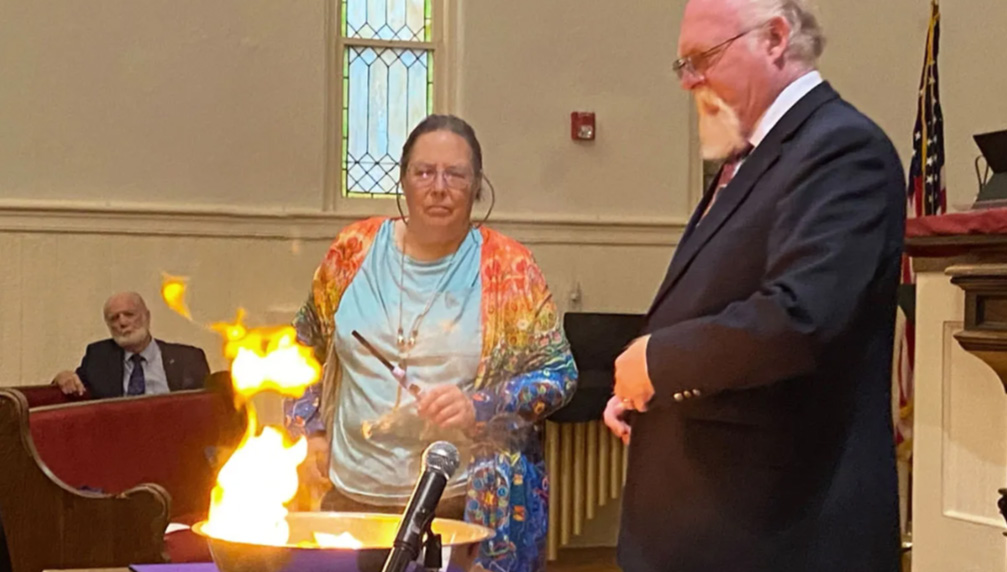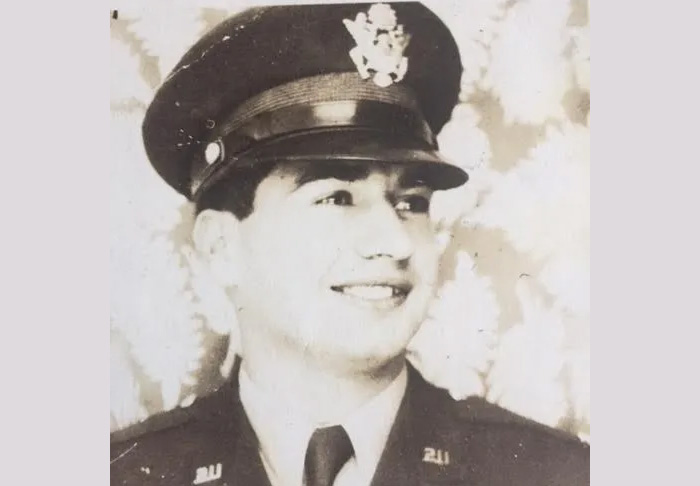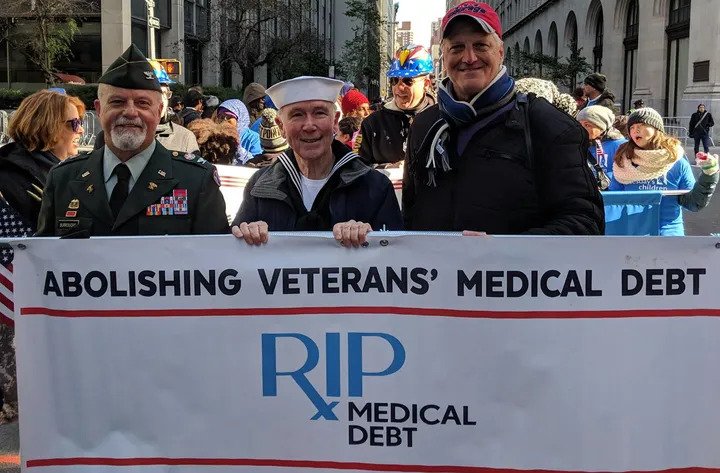North Carolina Church Debt Jubilee Retires Millions in Medical Debt — Can Veterans Everywhere be Next?
I find it amazing — and deeply gratifying — each and every time a person or organization becomes aware of, and then puts to work for their community the charity (RIP Medical Debt) I helped bring into existence.
The Trinity Moravian Church in Winston-Salem NC is the latest to do just that — with wondrous impact. They first raised, in small donations of $25 or $50, $5,275.42. With RIP’s help, they then purchased $1,165,796.61 in two NC counties owed by 1,356 families and saw it forgiven.
“With the wind at our back and a strong feeling that God had blessed this venture of faith, we decided to go again!” Reverend John Jackman said. A second campaign raised $15,047.97 by January 31st of this year and in February forgiveness letters went out to 3,355 families in three more counties abolishing an additional $3,296,863.64!
They ceremoniously burnt the “bills” forgiven, not realizing the blaze that they had started. “You guys made the top page of Reddit!” “Debt Jubilee is trending on Twitter, it’s the top story on TikTok.” The next day their story appeared on several syndicated talk shows, later picked up by CNN, and journalists from big-name publications made inquiries.
Rev. Jackman announced the launch of a third campaign which “will go very quickly because of the many other churches that have stepped up” and invited the faith-based community in the North Carolina Triad area to join in future projects “which we hope will grow as we talk to local hospitals about releasing more of the debt they hold.”
Did you know that America’s Veterans are waiting for that same attention and similar miracles?

In late 2020 I retired from full-time work with RIP to serve on its Board. By that time I had hit all but one goal I had envisioned at our start in January 2014, blowing past the paltry $1B in medical debt forgiveness mark I and fellow collections industry executive and co-founder Craig Antico had set.
That one goal (still) is to see that the VA changes its policy — just as hospitals are able to do — and make available unpaid and unpayable veteran medical debt for full and total forgiveness. No strings. No hoops. No stress. No claim submissions. Just gone!
To galvanize public support for this new mission, I and a dedicated core of teammates and partners launched a national “Veteran Mission Possible” (VMP) campaign to abolish such debt and reduce the horrendous rate of Veteran suicide — over twice that of the civilian population.
VMP is the creation of Let’s Rethink This (LRT), a Public Benefit “B” Corp. Employing the hard-earned mantra from RIP, “If they don’t know about you, they can’t do anything about you, we set about the task of getting known.
One of our major megaphones for “Impact Awareness,” in addition to Our Newspaper is a weekly national public radio broadcast called Rethinking Heroes which focuses on news of interest to veterans and their supporters. More importantly, to introduce to them the “Solution Providers” we locate and feature who have real-world remedies to the many illnesses that befall their community.
Déjà vu all over again
Just as with my experience in co-founding RIP, public awareness is hard to come by. VMP is not (yet) getting the attention that it needs and deserves. Not because Americans do not find Veteran issues important — they do — they just don’t (yet) understand the depths of severity.
This article, which I trust will circulate on social media and show up at someone’s website, will help relieve that problem. In turn — should the cause resonate, will help to get us funded.
As LRT/VMP is not a charity, we do not ask for tax-deductible donations. We can, however, legitimately request your financial support whether it be in sponsoring or partnering with us in this campaign or through smaller dollars contributions by individuals who find the cause more important than a tax deduction.
Here is our fundraising link for that purpose.
RIP Medical Debt to date has reached over $8.6 billion in medical debt abolishment, taking that burden from the backs of over 5.5 million Americans. This has taken over nine years of dedication by me, Craig, and a brilliant staff overseen by our Director, Allison Sesso.
It’s all about our Veterans this time. Together we can remove the $6B in Veteran medical debt currently held by the VA system and weighing on our warriors’ minds and backs.
It won’t take nine years this time — it can be done within months, if not weeks, with proper legislation and changes in policy.
Perhaps then, I might retire.








